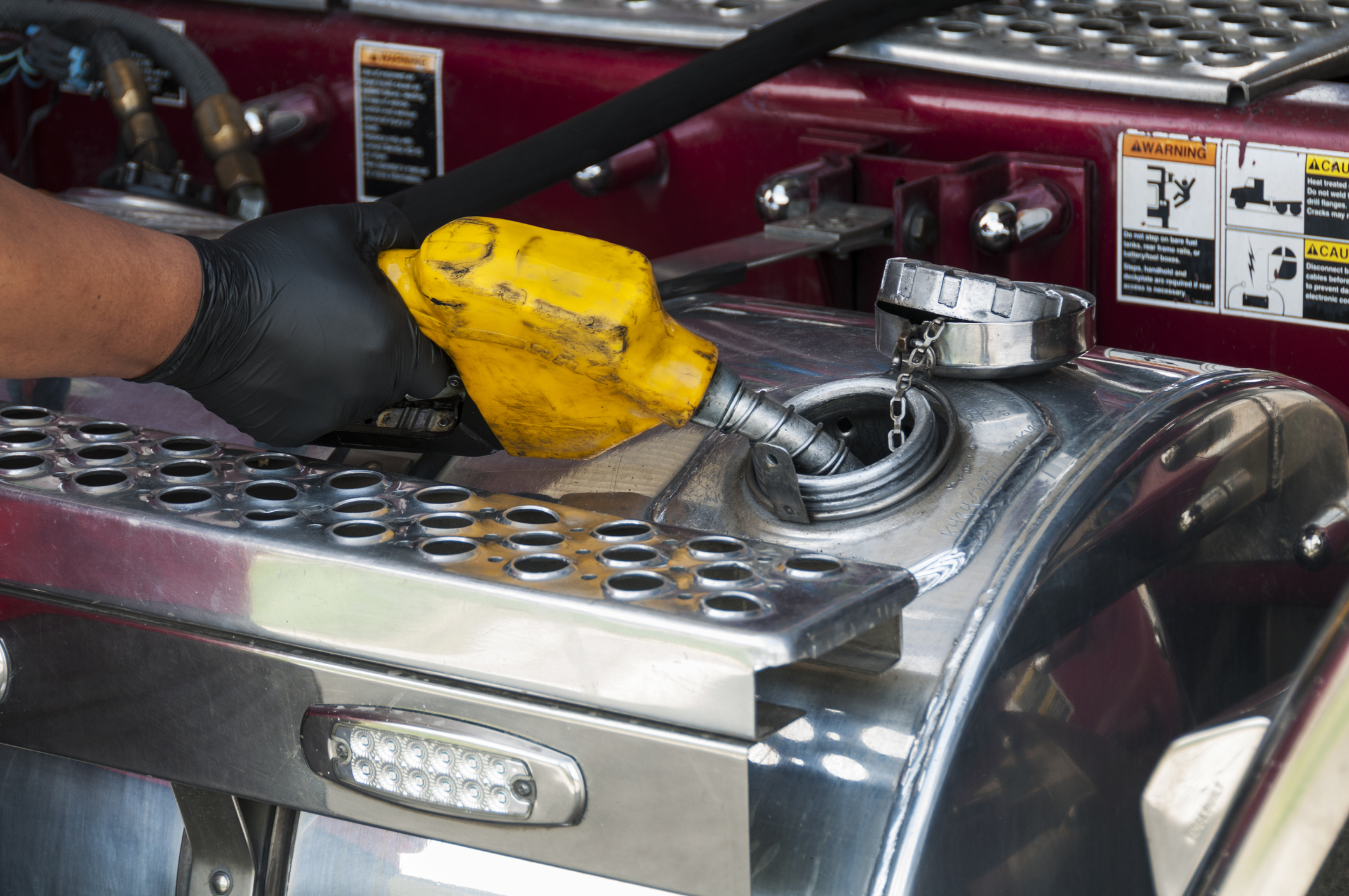Renewable Diesel: 5 Benefits to Improve Fleet Sustainability

Improving fleet sustainability is a top initiative for fleet managers looking to minimize environmental impact while maximizing efficiency. There are many solutions fleet managers can leverage to improve fleet sustainability, such as:
- Staying on top of maintenance
- Rightsizing fleets
- Correcting risky driving behaviors
- Optimizing routes
- Moving to electric vehicles (EVs)
All of these options are viable solutions that make a fleet more sustainable and reduce its carbon footprint.
But there’s another solution fleet managers can leverage that often goes overlooked — switching fleet vehicles to renewable diesel. Fueling vehicles with renewable diesel is one of the easiest ways to gain a competitive advantage and improve efficiency while reducing your carbon footprint.
Renewable Diesel 101
Renewable diesel is made from fats and oils, such as soybean or canola oil. It’s processed to be chemically the same as petroleum diesel and meets the ASTM D975 specification for petroleum in the United States.
Renewable diesel can be used as a drop-in fuel in its pure form (R100) or blended with petroleum diesel and/or biodiesel in various amounts. It’s odorless, colorless, low-carbon, 100% sustainable, and because of its stability, renewable diesel can be stored for extended periods without affecting fuel quality.
The production of renewable diesel begins by saturating fats and oils with hydrogen at temperatures above 572° F and ends with isomerization. This process creates fuel that’s almost chemically identical to petroleum diesel. Because of the chemical similarity, renewable diesel can be used interchangeably with petroleum diesel without requiring additives or special blends.
Small Changes Deliver Big Benefits
Renewable diesel presents an opportunity for fleets seeking to drive sustainability without compromising performance or profitability. The benefits renewable diesel provides position it as a viable alternative to conventional diesel — one that paves the way to greener and more efficient operations.
Here are five benefits and advantages of switching to renewable diesel.
Environmental Impact:
One of the most compelling benefits of renewable diesel is its environmental impact. With its renewable feedstock and cleaner combustion characteristics, renewable diesel significantly reduces greenhouse gas emissions compared to conventional diesel — by as much as 85%, depending on the materials that it’s made from.
Additionally, renewable diesel substantially reduces other harmful pollutants, such as particulate matter and nitrogen oxides. Switching to renewable diesel can be tremendously valuable if you’re striving to meet increasingly stringent emissions regulations and sustainability goals.
Performance Advantages:
If you’re worried about lower performance from renewable diesel, don’t be. Renewable diesel provides performance advantages over conventional diesel. Because of its high cetane number and superior lubricity, engine operation is smoother, which helps reduce maintenance costs and extends engine life.
Plus, renewable diesel provides improved cold-weather performance and enhanced fuel stability, which are common issues associated with biodiesel blends. All these characteristics add up to greater reliability and uptime, which are crucial to optimized production and minimized downtime.
Seamless Adoption:
Because renewable diesel is compatible with existing infrastructure, it can be seamlessly integrated without costly upgrades, vehicle modifications, or vehicle replacements. This smooth transition does not disrupt daily operations, ensuring operational efficiency and superior customer experiences.
Scalability:
Renewable diesel offers fleets a scalable solution that aligns with your changing fleet needs. As production expands and advancements in feedstock sourcing and refining technology are made, you can be confident that you’re investing in a sustainable fuel solution with long-term viability that helps mitigate the effect of fluctuating fuel prices on your bottom line.
Economic Advantages:
While the initial cost of renewable diesel may be higher than conventional diesel, you need to look down the road at the potential long-term savings through:
- Reduced maintenance costs
- Improved fuel efficiency
- Enhanced regulatory compliance
These savings far outweigh the initial investment. Additionally, government incentives and grants further offset the cost difference, making renewable diesel an even more attractive, cost-effective, and viable alternative to conventional diesel.
If you’re interested in switching from standard to renewable diesel, contact your fuel provider. They can offer a solution that best meets your unique supply and storage requirements, putting you in the driver’s seat on the road to improving sustainability and efficiency while maximizing revenue and profitability.